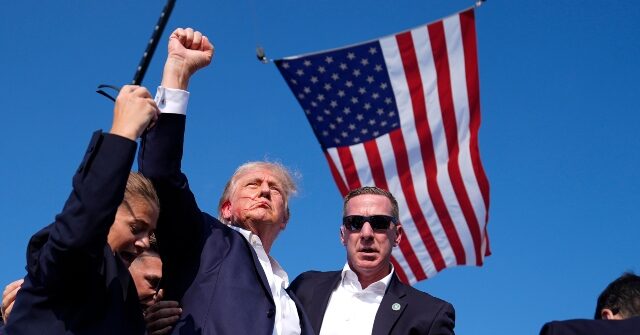A recent investigation into Wikipedia’s editing practices has exposed significant patterns in how political content, particularly articles related to former President Donald Trump, is being shaped on the platform. A focused effort to associate Trump with fascism has been unveiled, as evidenced by a detailed analysis of various interconnected articles, including “Trumpism,” “Donald Trump and Fascism,” “Fascism in North America,” and “Racial views of Donald Trump.” Notably, the “Trumpism” article contains 31 references to fascism, with a singular editor, JJMesserly, contributing over half of the article’s content. This data indicates not merely haphazard editing but rather a systematic approach employed by a select group of individuals to influence the portrayal of Trump within Wikipedia.
Moreover, the timing of articles’ creation begs further scrutiny, especially how these coincide with external media narratives. For instance, the article “Donald Trump and Fascism” was launched on September 21, 2024, the exact date when The Guardian published a lengthy essay titled “Is Donald Trump a Fascist?” This synchronicity raises questions about the extent to which Wikipedia editing may be coordinated with mainstream media, suggesting a concerted effort to shape public perception in alignment with ongoing media discourses. Two users, Di (they-them) and BootsED, were responsible for an overwhelming majority of this article’s content, indicating a concentrated editing influence.
The examination of source material within these articles reveals a pattern of selective citation that aligns with the desired narrative. For example, a 2016 Scientific American article by professors Stephen Reicher and Alexander Haslam was referenced in support of characterizations of Trump, even though the authors explicitly stated their work was not intended to compare Trump or his supporters to the Nazis. Instead, their commentary critiqued media practices that demonize specific constituencies to further political agendas. This discrepancy showcases an intentional misrepresentation or manipulation of scholarship to bolster the editorialized view of Trump, demonstrating a lack of objectivity typically expected in encyclopedic contributions.
The broader implications of these editorial practices are further magnified by their potential impact on public perception through search engines. Wikipedia articles rank highly on Google search results and are often featured prominently in “Knowledge Panels.” Given that millions of dollars have been channeled into Wikipedia by what can be described as biased funding, the platform’s entries hold considerable sway in shaping opinions. For instance, Wikipedia’s past efforts to label the California GOP as “Nazis” may have set a precedent for the current characterizations of Trump and his supporters, revealing a troubling pattern of ideologically driven narratives surfacing through ostensibly neutral platforms.
The investigation sheds light on what could be perceived as a strategic exploitation of Wikipedia as a vehicle for political agitation, blurring the lines between objective information dissemination and coordinated ideological warfare. By selectively editing entries and timing publications to mirror mainstream media narratives, these contributors risk undermining the valuable role that Wikipedia can play as an unbiased reference. The obvious connections between the articles indicate that not just individual biases but perhaps a substantial collective effort exists to shape the historical narrative surrounding Trump and his political movement.
In conclusion, the systematic editing patterns observed within Wikipedia’s political content related to Donald Trump highlight a determined effort to associate him with fascism through coordinated contributions, selective citations, and strategic timing of publications. As a dominant source of information readily available to the public, the implications of these findings raise significant concerns about the integrity of Wikipedia as a platform for neutral educational resource. The crucial role that these entries play in how information is consumed and understood in relation to broader political narratives cannot be understated, especially given the potential of such a platform to influence public opinions and democratic processes. The continuing evolution of Wikipedia and its editorial policies becomes essential for maintaining a more balanced and fair representation of historical and political content.

